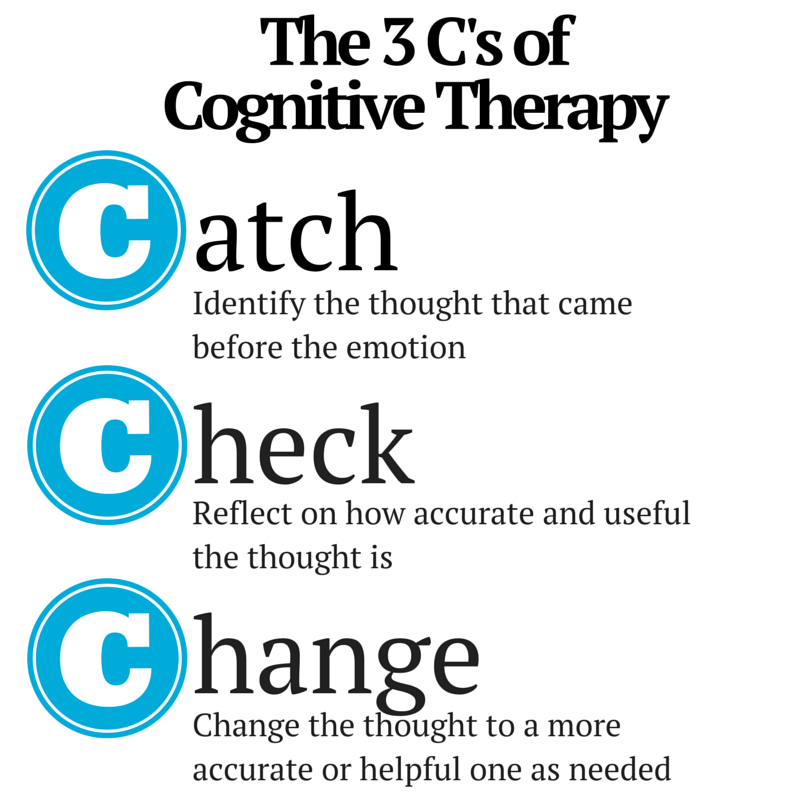While the basic principles of Cognitive Therapy remain constant across age groups, certain variations in explanations help children and adolescents grasp key concepts. Helping clients of all ages learn to identify and evaluate unhelpful and inaccurate thinking is a crucial component in Cognitive Therapy. The mnemonic of “The Three C’s” (Catching, Checking, and Changing) can be particularly helpful to children in learning this process.
To engage children in treatment, therapists often frame the therapy experience as “becoming a detective” to investigate their thinking. The first step involves teaching them to “Catch” the thoughts that are associated with a specific experience of negative emotion. By building on skills that have been taught in earlier sessions, children reflect on a previous situation in which they became upset. Once they identify their automatic thoughts, the therapist asks them to rate how strongly they believe the thoughts, implying that thoughts may be completely true or completely false or some place in between. They begin to see their experience in light of the cognitive model-that their negative emotions are associated with specific thoughts.
The next step in the detective work for children is “Checking” the thought.They learn to gather evidence for or against a thought and consider alternative explanations for the situation. They may be asked to consider the impact of their thought, the worst case scenario if the thought were true, and what they might say to a friend if something similar happened to him or her. If a thought is both accurate and distressing, the therapist helps guide the child to “Check” whether the thought is helpful.
Once children have mastered catching and checking, they learn how to “Change” their thoughts. Their therapist guides them to develop more accurate and helpful responses to distressing situations. These responses must be believable, in the children’s own words, and short enough to be said quickly. Children then practice using these more helpful responses in session and then out of session. As they encounter similar situations that formerly led to distress, they begin to perceive these new experiences differently.
Explore world class CBT training opportunities from Beck Institute.
Reference:
Creed, T. A., Reisweber, J., & Beck, A. T. (2011). Cognitive therapy for adolescents in school settings. New York: Guilford Press
Get this information straight to your inbox by signing up for the Beck Institute E-Newsletter
